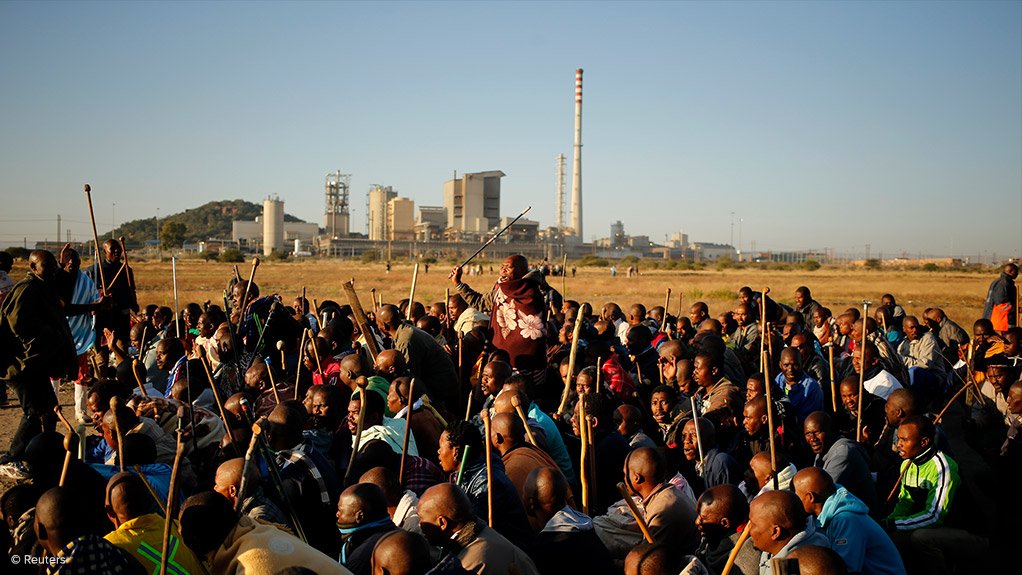Riyaz Patel
Amid the mayoral manoeuvres in Johannesburg and Tshwane Thursday, President Cyril Ramaphosa quietly signed into a law a Bill that, according to the Land and Accountability Research Centre (LARC), will strip some 18 million of the poorest South Africans of their most basic rights.
The Traditional & Khoi San Leadership Bill (TKLB) is an “unmitigated disaster for 18 million rural black South Africans – a third of SA – who are now transcribed as subjects rather than citizens,” added Josh Budlender from the Socio Economic Rights Institute (SERI).
“No prior law in South African history, even during colonialism and apartheid, has enabled traditional leaders to dispossess people of their land rights without either their consent, or expropriation.”
Land and Accountability Research Centre (LARC)
LARC charged that two panel submissions on land reform – one chaired by former president Kgalema Motlanthe (2017) and the other by Ramaphosa’s own advisory panel (2019) – warned that “provisions of the Bill are in breach of fundamental constitutional rights.”
LARC further contends that the Bill makes provision for traditional leaders to “sign deals with investment companies without obtaining the consent of those whose land rights are directly affected.”
And it’s most damning claim: “No prior law in South African history, even during colonialism and apartheid, has enabled traditional leaders to dispossess people of their land rights without either their consent, or expropriation.”
LARC said numerous submissions warned that that the “Bill undermines the customary and informal property rights protected by Section 25(6) of the Constitution,” and negates the decision-making authority that is the “hallmark of citizenship for the 18 million South Africans living in the former homelands.”
It added that the timing of Ramaphosa signing the Bill into law now is questionable, and that the President had “strong legal grounds” to refer it back to Parliament.
“He chose to ignore these,” the land lobby group said.
Staying on the timing aspect, LARC said ” because many existing investment deals, particularly in mining, are legally precarious as the traditional councils that signed them were not legally compliant with the requirement to include some women and elected members.
“The Bill attempts to ‘remove’ the consequence of legal invalidity for councils that fail to ‘transform'”
What is at Stake
LARC says rge TKLB seeks to provide a “veneer of legality” to partnerships of “extraordinary greed and complicity that already exists between government and the mining sector.”
It says the TKLB will will repeal and replace already enabled dispossession and thus deppen inequality, while shattering any hopes of social cohesion by “defaulting to the racially inscribed boundaries of the former homelands.”
“Instead of regulating mining to ensure that basic rights and the environment are protected, this Bill signals that government is happy to jettison the most basic rights of the poorest South Africans in order to maintain the precarious status quo.”
This precarious status quo is illustrated by the ever-increasing scale of violent protest around mining in the former homelands.
The Minerals Council reported 330 incidents of violent protest in the first 6 months of this year in a relatively small part of Limpopo, Daily Maverick reported this week.

The same area saw 260 protests in 2018.
In response, the Minerals Council and the police plan to set up a joint operations centre in the region (the Eastern Limb of the platinum Belt).
In the Eastern Cape the police have been rolling out police stations located in the palaces of traditional leaders.
Last year, the national police commissioner revealed that about 14 740 crowd-related incidents take place in South Africa yearly.
“Of that number, our estimates are that about 35 protests take place in mining communities every month. This means 2.8% of the service delivery protests are mining-related,” General Khehla Sitole said.
“When law enables dispossession without consent or expropriation, as the TKLB permits, violence, including state violence, is the inevitable consequence,” LARC said.
“In the case of the TKLB, it is a consequence that the president could have prevented.”
